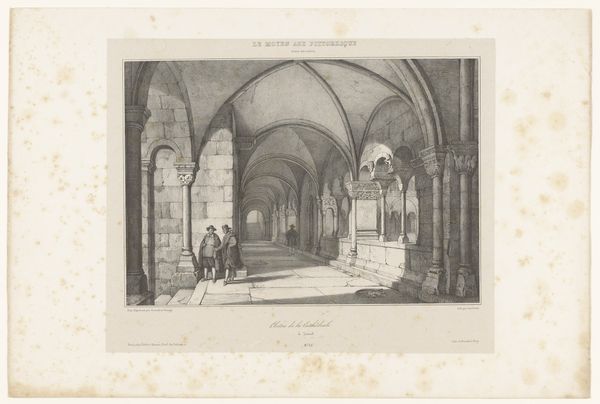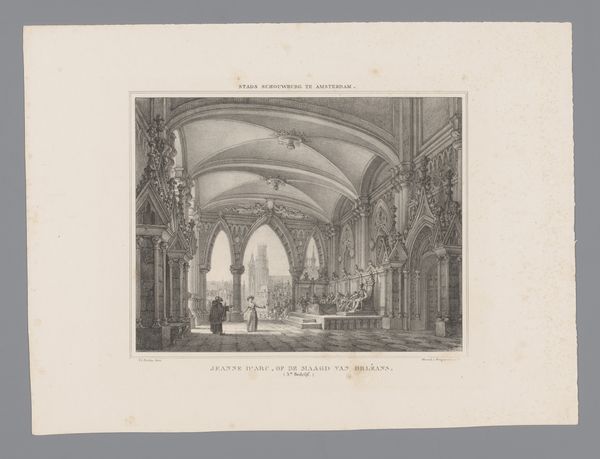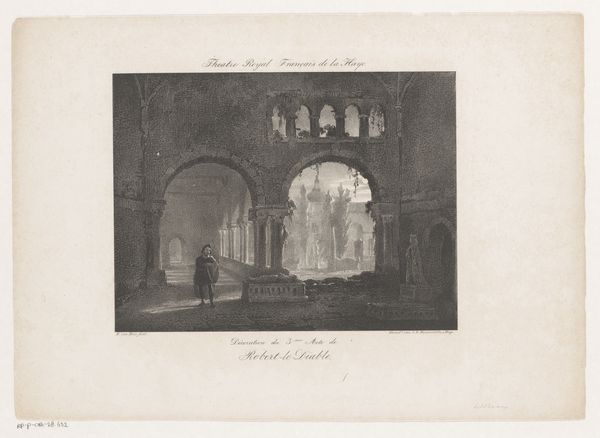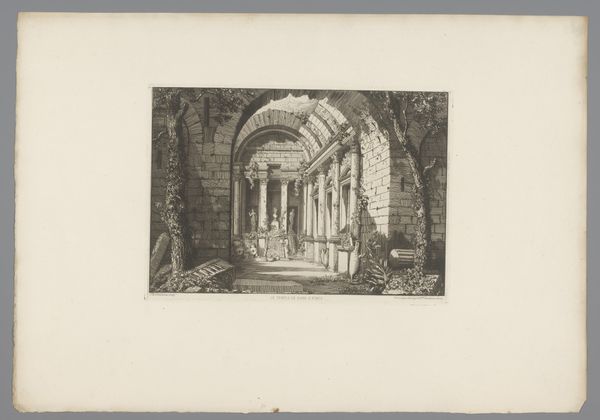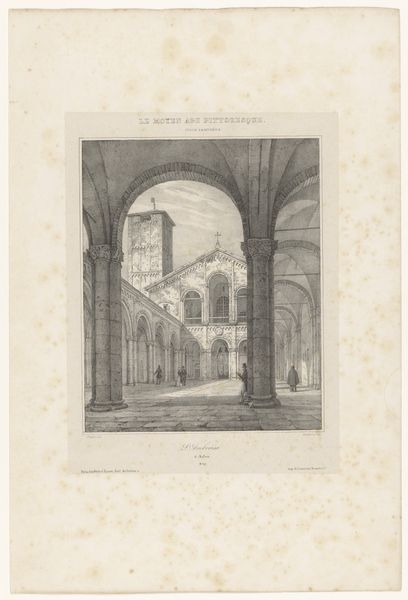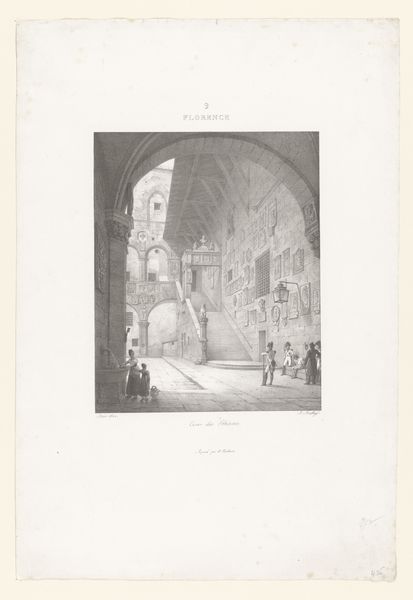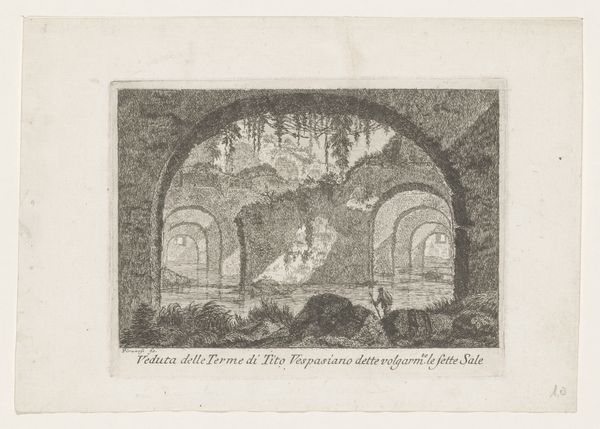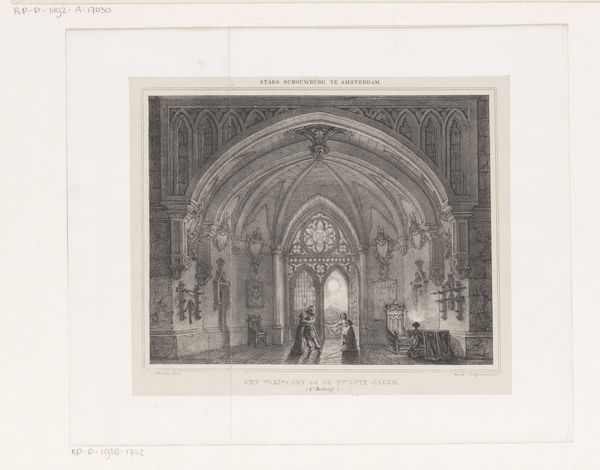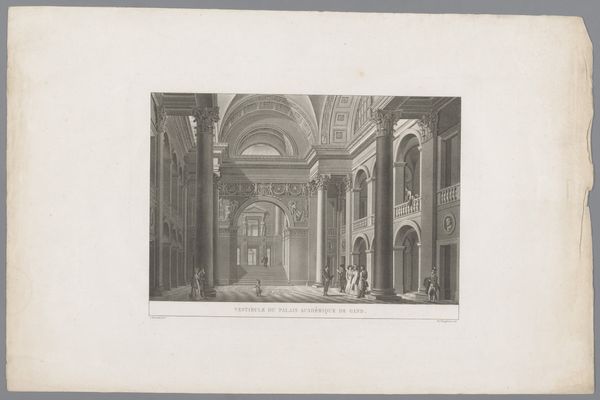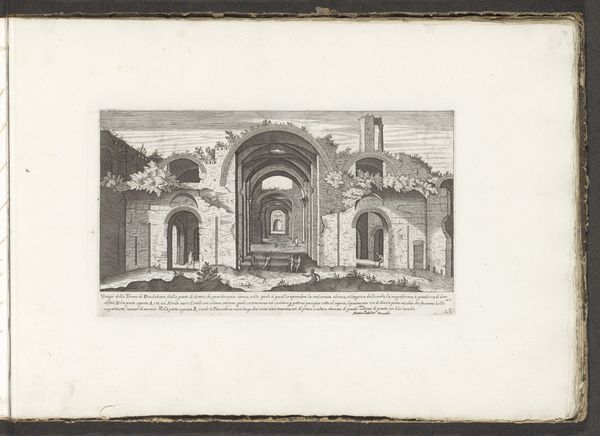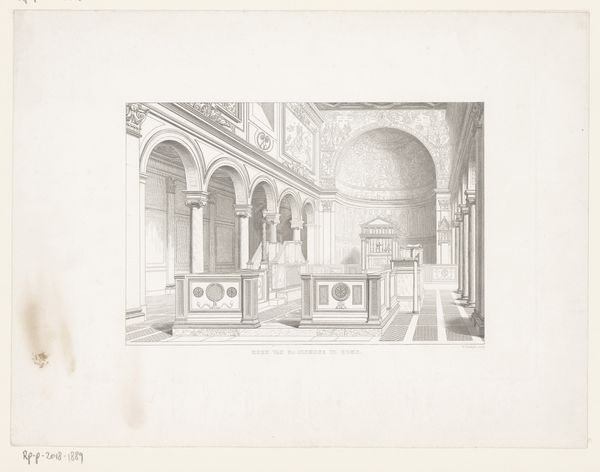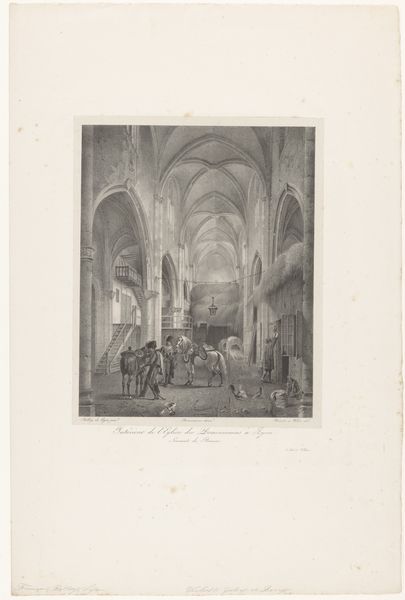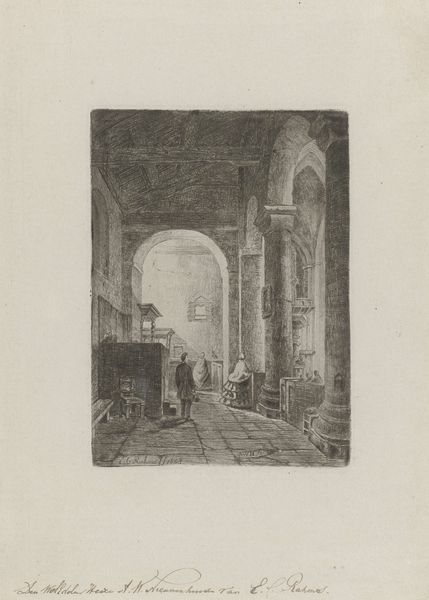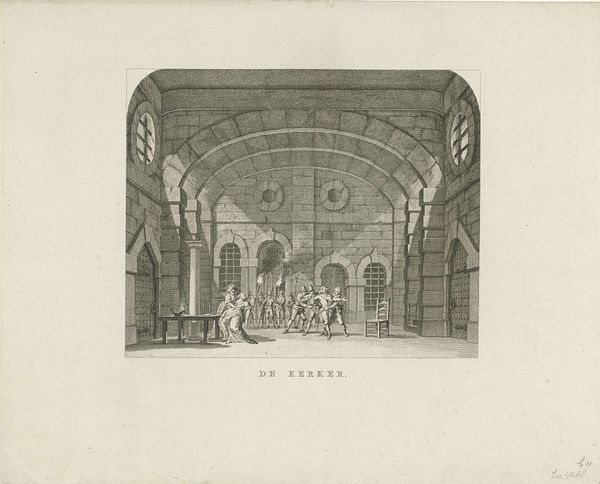
Semiramis, haar zoon en geest van overleden man in crypte before 1845
0:00
0:00
print, engraving
# print
#
romanesque
#
cityscape
#
history-painting
#
engraving
#
monochrome
Dimensions: height 264 mm, width 355 mm
Copyright: Rijks Museum: Open Domain
François Joseph Pfeiffer created this print, "Semiramis, her son, and the ghost of her deceased husband in a crypt", sometime around the late 18th or early 19th century. The composition invites us into a cavernous, gothic space rendered in precise detail. Arches recede into the distance, guiding our eye through a play of light and shadow that evokes a sense of depth, mystery and the sublime. Pfeiffer's formal arrangement evokes an interplay between visibility and invisibility, presence and absence. We see Semiramis and her son as figures situated within the architecture of power and death. The lines of the architecture lead to a vanishing point where the ghost appears, challenging our understanding of reality and representation. The architecture is heavy with cultural codes and symbolism of mortality. Note how the artist uses line and perspective not just to depict space, but also to explore themes of power, the supernatural, and the human condition. The print acts as a site where different realities, historical and spectral, intersect and challenge fixed meanings. It reminds us that art is always open to reinterpretation across time.
Comments
No comments
Be the first to comment and join the conversation on the ultimate creative platform.
